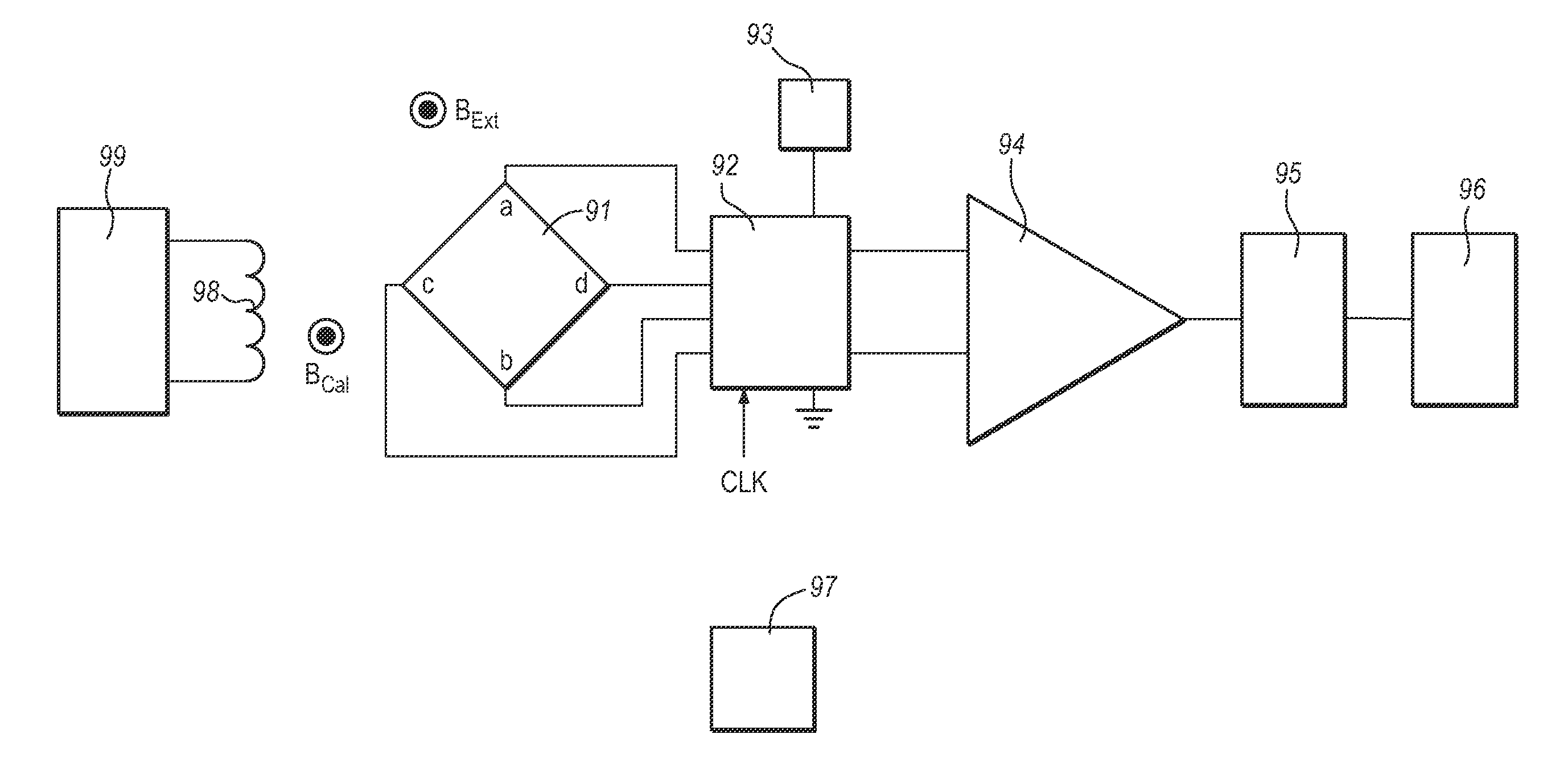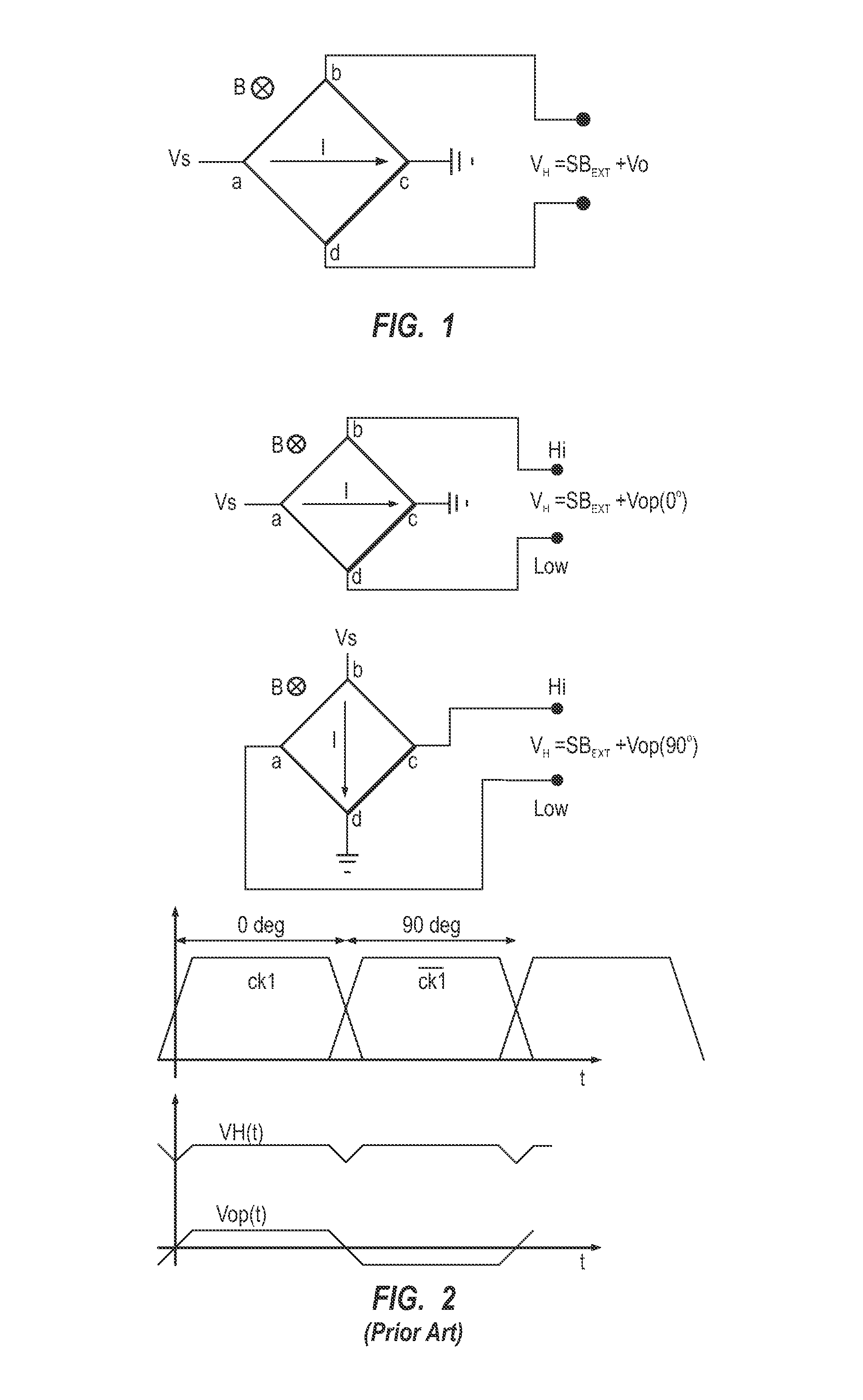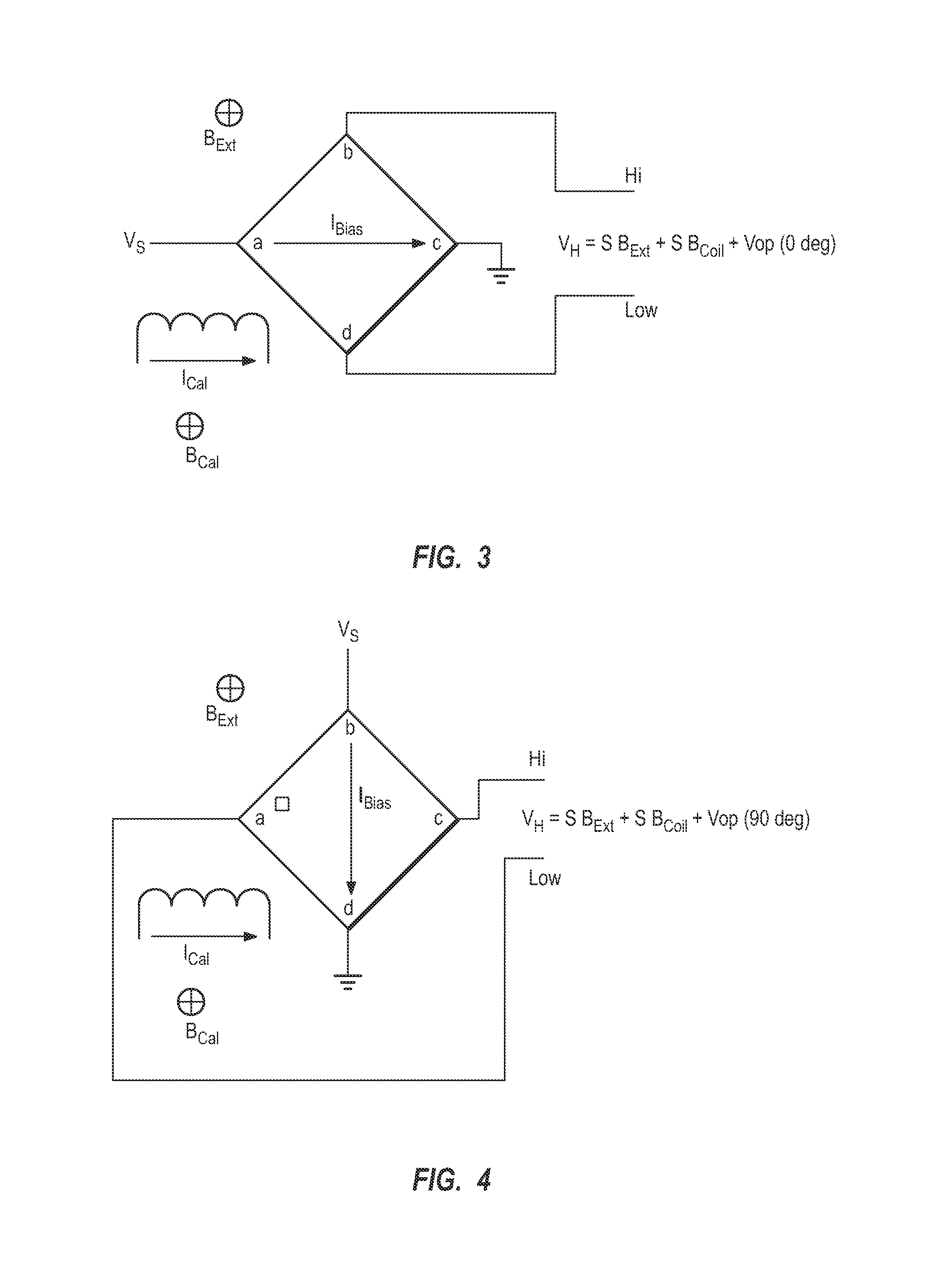Method of auto calibrating a magnetic field sensor for drift and structure therefor
a magnetic field sensor and auto-calibration technology, applied in the direction of magnetic measurement, magnetic offset compensation, instruments, etc., can solve the problems of temperature variation, compensation circuits cannot compensate adequately for temperature variation, and the problem of not solving the problem of sensitivity variation
- Summary
- Abstract
- Description
- Claims
- Application Information
AI Technical Summary
Benefits of technology
Problems solved by technology
Method used
Image
Examples
first embodiment
[0066]In a first embodiment, the present invention builds on the dynamic offset compensation method of the prior art described here above to separate the contribution of the offset, the external magnetic field BExt and the reference magnetic field BCal to the output signal of a Hall sensor.
[0067]In a first phase, e.g. 0° phase, as illustrated in FIG. 3, a bias signal for biasing the Hall sensor is applied between a first set of two diagonally opposed electrodes a, c, e.g. a bias current IBias is applied between the electrodes a, c. The sensor signal VH is measured between Hi and Lo terminals connected to a second set of two diagonally opposed electrodes b, d.
[0068]The reference magnetic field BCal is generated by a magnetic field generator, e.g. a reference current ICal flowing through a coil, in the vicinity of the magnetic sensor device, e.g. Hall sensor, e.g. a coil surrounding the Hall plate.
[0069]The reference current ICal is kept constant in magnitude and direction during the ...
second embodiment
[0078]In a second embodiment, as illustrated in the time chart of FIG. 7, the reference or calibration magnetic field BCal is cancelled (magnitude is zero) during one of the two 90 degree sub-phases, e.g. during the second 90 degree sub-phase, rather than being inversed in direction while keeping the same amplitude. In the first of the two 90 degree sub-phases, in accordance with this embodiment, the reference current ICal keeps the magnitude and the direction it had during the 0 degree state. The resulting system of equations is:
VH1=SBExt+SBCal+Vop (Eq. 6)
VH2=SBExt+SBCal−Vop (Eq. 7)
VH3=SBExt−Vop (Eq. 8)
[0079]The principal determinant of that system of equations on the unknowns x=S BExt, y=S BCal and z=Vop is:
[0080]11111-110-1
which is equal to −2. Since that determinant is non zero, it guarantees that there exists one and only one solution for the three unknowns x=S BExt, y=S BCal and z=Vop satisfying the three equations Eq. 6, Eq. 7, and Eq. 8 simultaneously.
[0081]If the produc...
third embodiment
[0083]In a third embodiment, the first and second phases, e.g. 0 degree and 90 degree phases, are both divided into two sub-phases where the direction and / or the magnitude of the calibration field is changed (see for instance FIG. 8). The resulting values obtained for the product S BCal can be e.g. averaged to determine whether or not the sensitivity S has varied.
[0084]First the case is considered where the amplitude of the calibration field is kept constant but its direction is varied from one sub-phase to another and this for both the 0 degree and the 90 degree phases (see FIG. 8). Measurements of the output voltages VH1, VH2, VH3, VH4 are performed at time instants t1, t2, t3 and t4 in each of the sub-phases, respectively.
[0085]In that case, measuring the output voltages VH1, VH2, VH3, VH4 of the Hall sensor in each of the sub-phases will yield four linear equations. Contrary to what has been done in the above embodiments, it does not have to be assumed that the offset Vop is the...
PUM
 Login to View More
Login to View More Abstract
Description
Claims
Application Information
 Login to View More
Login to View More - R&D
- Intellectual Property
- Life Sciences
- Materials
- Tech Scout
- Unparalleled Data Quality
- Higher Quality Content
- 60% Fewer Hallucinations
Browse by: Latest US Patents, China's latest patents, Technical Efficacy Thesaurus, Application Domain, Technology Topic, Popular Technical Reports.
© 2025 PatSnap. All rights reserved.Legal|Privacy policy|Modern Slavery Act Transparency Statement|Sitemap|About US| Contact US: help@patsnap.com



